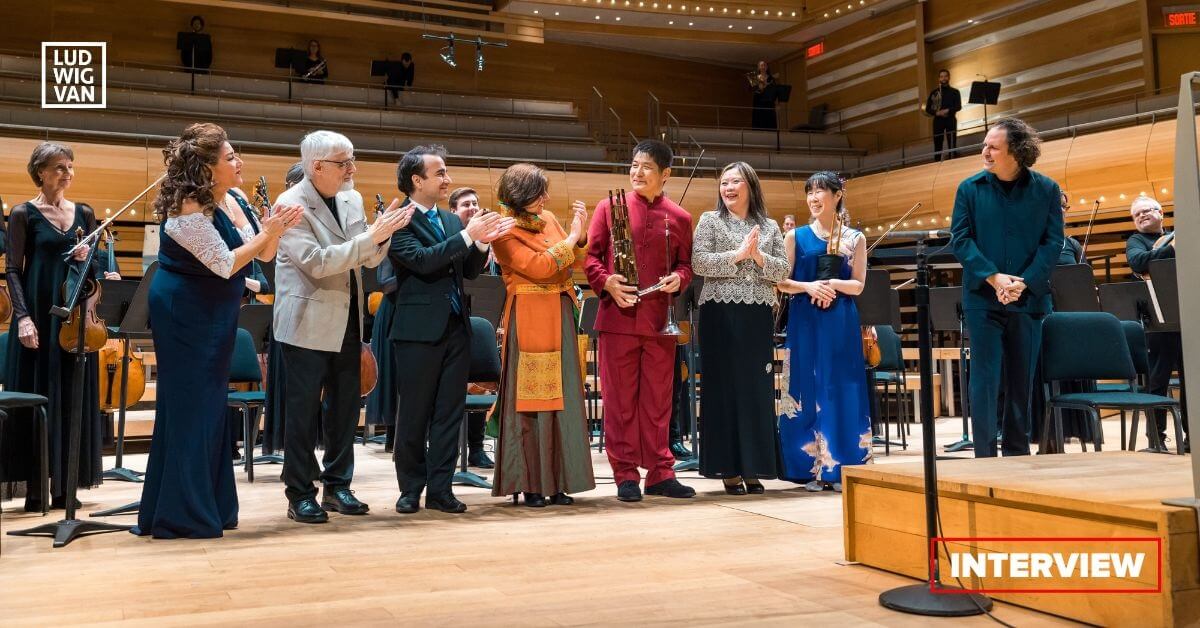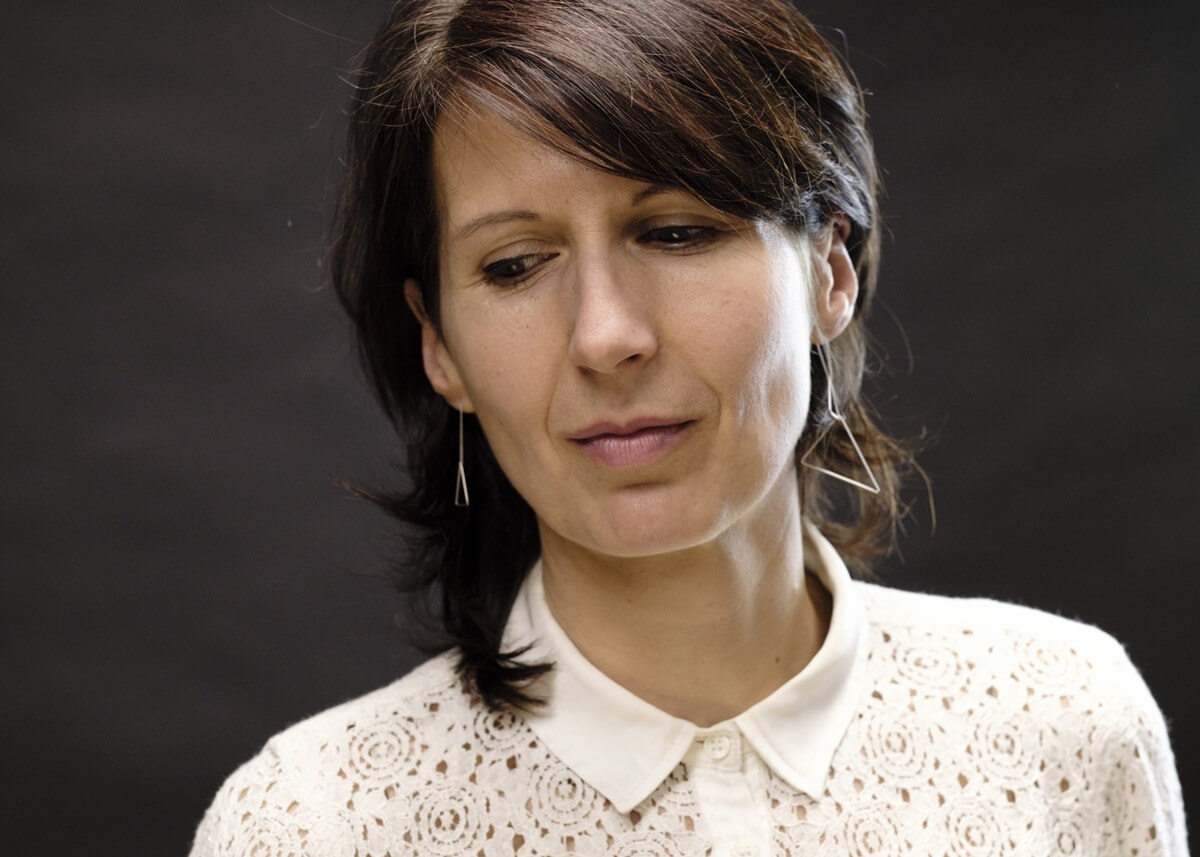
The Azrieli Music Prizes are currently open for submissions from composers in four categories. With the submission deadline of May 5, 2023 approaching for the next round of prizes scheduled for 2024, we spoke to returning judge and composer Ana Sokolović.
Here’s a look at the prizes and the process.
The Azrieli Music Prizes
The Azrieli Music Prizes are part of the Azrieli Foundation’s commitment to supporting music, culture and the arts. The focus of this year’s competition is choral music, including works for a cappella mixed voice choir plus up to four additional instruments and/or soloists.
Since their inception in 2014, the prizes for composition have expanded to now include four separate categories:
- Commission for International Music — open to composers from around the world for a project that examines the diversity of global culture in creative ways;
- Prize for Jewish Music — for the best new and undiscovered work of Jewish music, which can include pieces composed during the last 75 years, but which have not had a significant performance or recording history;
- Commission for Jewish Music — which asks composers to consider (and respond to) the question “What is Jewish music?”;
- Commission for Canadian Music — offered to a Canadian composer whose proposed work creatively tackles the issues inherent in writing music in contemporary Canada.
Awarded every two years, the prize includes $50,000 CAD for each category. For the three commission categories, the funding allows the composers the time and resources to complete their proposed work.
Aside from the Prize for Jewish Music, the judges are only considering proposed works. The proposal is supported by scores and other documentation; nonetheless, they’re judging an idea rather than a finished work.
There are separate juries for each of the prizes. The four winning composers will be involved in the whole process, from rehearsals to performances and a recording of their work. The world premiere of all four pieces will take place in Montreal at a gala concert. Along with the gala premiere, their works will be performed on another two subsequent occasions internationally, and professionally recorded for future release.
The judging process begins after the submission deadline of May 5, and the next AMP Gala Concert will take place in the fall of 2024, featuring L’Orchestre symphonique de Montréal Chorus.

Ana Sokolović
Québec-based composer Ana Sokolović is known internationally for her creative works, ranging from operas to orchestral pieces, solo and chamber works. She’s been part of the Azrieli judging process since the prizes began.
“I’m judging it since the beginning,” she says. “The first time, actually, I was invited, proposed by Joseph Rouleau. He was [Chair] of the [AMP advisory council].”
After Rouleau, a bass with an international reputation and lifelong champion of Canadian music, passed away in 2019, Ana assumed his position as Chair. “Of course, I consider it somehow my baby. I was the only composer in the advisory [council]. It was very important to have a composer here. They knew they needed a composer to launch a competition for composers.”
The AMP launched with the two prizes for Jewish music, later adding the Canadian music commission. The next iteration in 2024 is the first to include an International Music category. Ana has sat on the Jewish Music Prize jury, and is currently part of the Canadian Music Jury.
“I think it will be the last one,” she says of the latest category addition. “We’ll have one concert with four pieces.”
Success, for each category, largely revolves around the specific criteria the composers are asked to respond to. “Of course, each composition and competition has rules, but it’s very much related to the ability of composers to compose in this format,” Sokolović explains. This year’s competition, for example, focuses on choral works. “To see that someone has the ability to write for a choir, and wants to write for a choir, that’s important,” she says.
Technical ability, in other words, is not the only aspect that the judges will consider. For the three commission categories, participants will have to be able to explain the project they’re proposing in enough detail to capture its qualities.
The four judging panels include composers, conductors and musicologists who analyze the entries with the criteria of each category in mind. They look at issues of authenticity when it comes to cultural expression.
“Three things are important: your talent, ability to write, so technical knowledge, and then the project.”
Given AMP’s prizes and profile, many applications are received, which then go through a long process of consideration.
“At the beginning, you see the people who are too young and inexperienced.” Those entries are, naturally, the first that are eliminated. The rest are sifted through with a view to how well they respond to each category. “We end up with maybe a dozen, and then we end up with maybe five. Then, it’s difficult to put them in order,” she says. “It’s a very, very interesting process.”
Having a varied panel of judges is key to a fair process. “It’s difficult to do the jury process,” she explains. “That’s why it’s important that we have several people — we discuss.”
There are rewards for the hard work. “It’s not necessary joyful in the sense of hedonism. We’re happy at the end, but it’s not easy.”
Over the course of the years and the time spent on judging panels, Sokolović has gained an impression of the breadth of the new generation of composers. “New composers, young composers, they are always in a reaction with the people who came before them,” she explains. “We can find in the new generation all types of music technically. Some write very tonal music. Some are doing very experimental techniques — adding non-traditional instruments,” she adds.
“What is important for us is that the project makes sense, and also that it’s relevant, and that it’s technically well done. The directions are multiple. We receive all kinds of different proposals.”
Her own experiences with competitions improved over time. “Of course, when I was very young, I applied to a lot of competitions,” she says. “When I was older, I did get them.”
As she points out, though, in several respects, the AMP competition is unique. “Here, what is amazing is that there is a proposal, and the flexibility to choose the instruments you want to add. It’s up to you to decide.”
For composers entering the competition, there is more than money at stake. “It’s really very, very respectful for the composer,” she notes. “It’s not just the monetary prize, it’s that they are well treated.” She notes the significant rehearsal time available, along with the other perks of the prizes. “It’s not always the case.”
The Azrieli Music Prizes are open for submissions until May 5; more information here.
Good luck to all the applicants.
#LUDWIGVAN
Get the daily arts news straight to your inbox.
Sign up for the Ludwig van Daily — classical music and opera in five minutes or less HERE.
- INTERVIEW | Composer Ari Kinarthy And Director Jeff Lee Petry Talk About Ari’s Theme, Premiering At Hot Docs - April 26, 2024
- PREVIEW | Creators & Performers Natalya Gennadi And Kristine Dandavino Talk About Grandma’s Shawl - April 26, 2024
- PREVIEW | Artistic Director Emily Cheung Dives Into Little Pear Garden Dance Company’s History & 30th Anniversary Peformance - April 26, 2024



